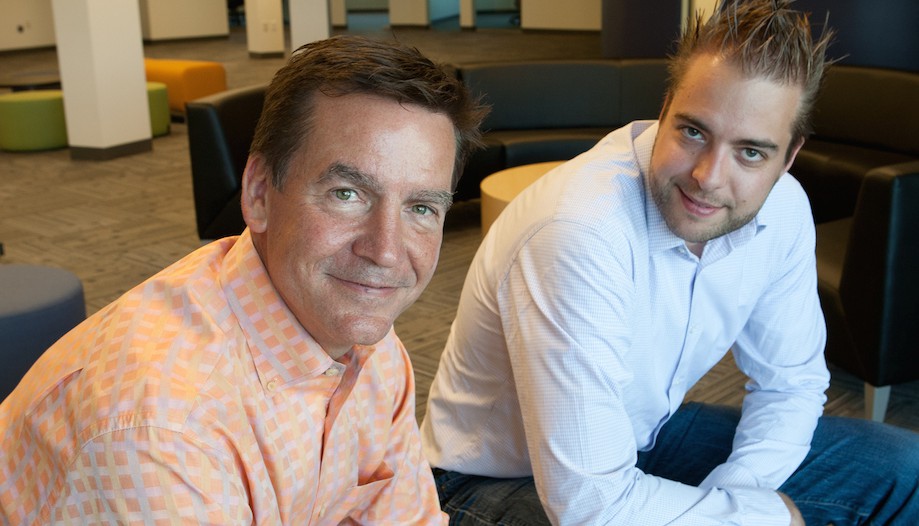From: betaboston.com
Private companies and the investors who back them are a bit insulated from the jitters that have plagued public stock markets in recent days. But that doesn’t mean they aren’t paying attention.
At investment firms and tech-company offices around Boston, people were keeping a cautious eye on Monday’s stock-market stumbles for an early signs of a broader market correction.
Executives and investors said the biggest effects of any public-market turmoil would first be felt by late-stage private companies that are thinking of raising more capital or heading for an initial public offering. Tom Erickson, the chief executive of website software seller Acquia, said any market turmoil is viewed through the lens of a possible initial public offerings in the company’s future.
“We do think about whether there’s a window there or not at any given point in time. And if the market’s going through crises, what does that window look like?” Erickson said. “Having said that, I think the robust private market that’s existed for money has actually caused a lot of companies to slow down their IPO discussions and say, wow — you mean I can raise this kind of money and be private? Why wouldn’t I want to do that?”
That surge in private-market investment also has helped drive up the paper valuations of companies that may still be years away from an acquisition or IPO. The tech industry has even coined a term, “unicorn,” to describe and track the list of private companies that investors have valued at $1 billion or more. Raising that much in private money used to be a rare event — hence the term.
Diane Mulcahy, the Boston-based private-equity portfolio manager for the Kauffman Foundation, said scrutiny will turn to those highly valued companies if the public markets truly begin to tumble.
“I would be very curious to track the number of unicorns, which will which will go down if there is a persistent and significant stock-market correction,” she said. “And I think this dry bubble that we’re in — high private, late-stage valuations, and no exits — I think that will get worse for investors. You can argue how open the exit window is at the moment, but it will definitely be smaller.”
Private-equity investors also could see effects if the stock markets remain unsettled and larger investors retreat from relatively risky bets that take years to pay off, observers said.
There are “a historic number” of private-equity funds trying to raise money from investors right now — somewhere between 2,500 and 3,000 — said Mike Nugent, the CEO of Bison, a Boston startup that provides financial analysis software for private-market investors.
Those private equity funds still trying to finish their fund-raising rounds have bigger worries when the broader stock markets begin to quiver, he said.
“Some funds are raising very quickly, in 60 to 90 days. Some are out there on their second or third extension trying to hit their target. I think everyone has concerns that if the market comes down, their window is going to close and they’re going to come up short,” Nugent said.
When a true market correction does emerge, midstage private companies can feel the pinch in the form of stingier fund-raising markets and lower cash flow, which leads to tough discussions about cutting down spending, said Neeraj Agrawal, a general partner with Boston’s Battery Ventures.
“I think that’s going to make board meetings really interesting,” he said.
For early stage companies, however, getting started in an economic lull can have surprising benefits. “We’ve had some of our greatest winners get founded right at these downturns,” Agrawal said.
Boston-based Localytics, a mobile-app marketing and data company, is a good example of the resilience a lackluster market can breed. Co-founder and CEO Raj Aggarwal noted that he left his previous job as a Bain & Co. consultant in late August 2008. About two weeks later, Lehman Brothers collapsed, kicking off a financial crisis.
“What we thought was going to be an easy road to fund-raising ended up being over a year and a half of bootstrapping the company. But that actually made us stronger,” he said. “We were forced to work really closely with our customers, build a platform for what they wanted, and focus on those needs.”
Today, Localytics has about 250 employees in its offices in Boston, London, and San Francisco and has raised about $60 million from investors, including a $35 million round closed in March. Aggarwal said that he has intentionally raised more capital than the company needs to ensure it has a financial cushion.
“I’m paranoid by nature, and so I’ve been paranoid about a correction for probably three-plus years,” he said. “We manage the company accordingly to be able to, as best as possible, navigate a downturn.”
Trying to forecast major economic shifts from a few days or even weeks of shaky trading is a tricky business. But those who have lived through previous cycles remember them well, said Jo Tango, a partner at venture firm Kepha Partners.
“Things don’t make sense until after the fact. In March 2000, people thought that correction was going to be temporary, and it wasn’t,” he said. “It was the end of the dot-com bubble.”








Leave a Reply
You must be logged in to post a comment.